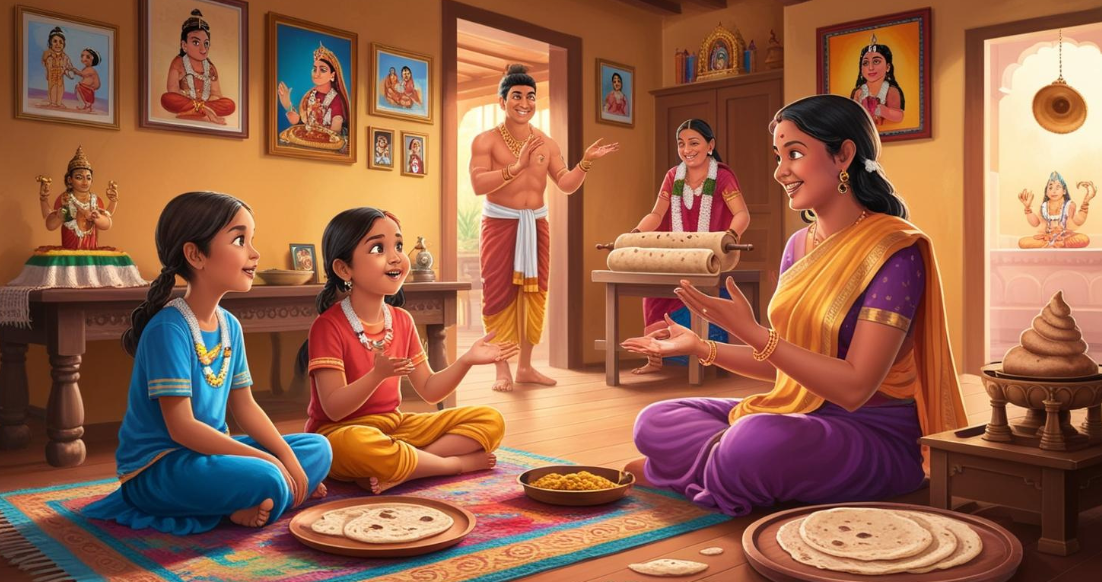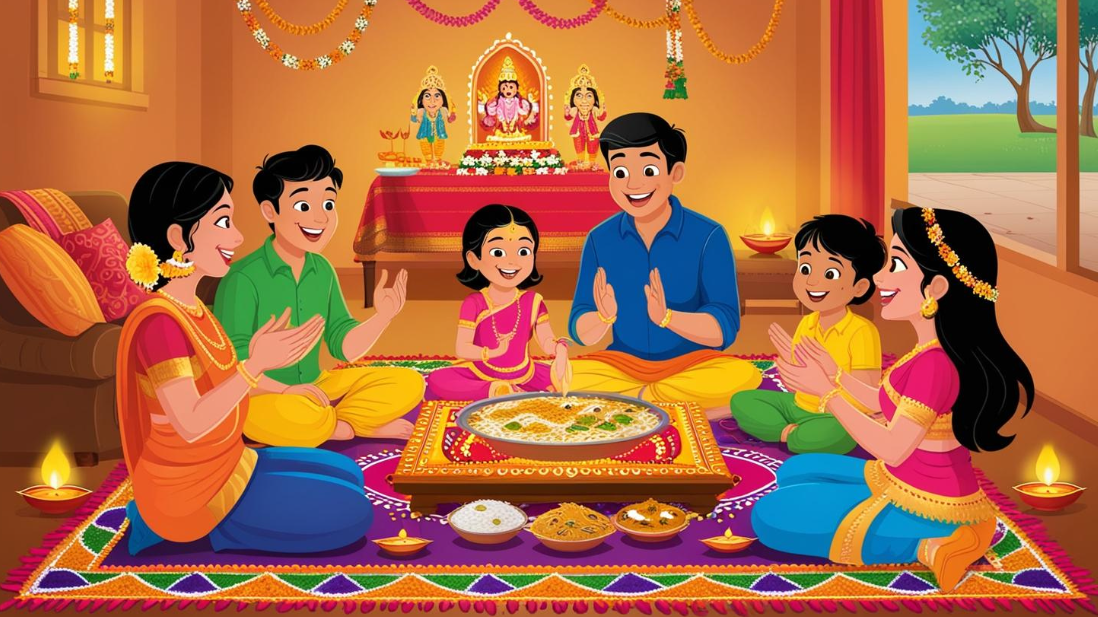Hey there! Let’s start by exploring the traditional Indian parenting style and what makes it so unique. Imagine a cozy evening at your grandparents’ house, where your mom’s cooking smells heavenly, and the sound of your dad chatting with uncles fills the air. That’s the vibe of traditional Indian parenting – warm, vibrant, and full of love. In this style, children grow up surrounded by strong cultural values, respect for elders, and deep family bonds. Let’s dive into what makes this parenting approach so special and why it continues to inspire families around the world.
What Is the Traditional Indian Parenting Style?
Picture this: A home where elders are respected, values are cherished, and children grow up surrounded by love and guidance. That’s the essence of the traditional Indian parenting style. It’s not just about rules and discipline; it’s about creating a strong foundation of respect, togetherness, and cultural pride.
Indian parents often play multiple roles in their children’s lives. They’re not just caregivers; they’re teachers, storytellers, and sometimes even best friends. They guide kids with affection and a sprinkle of discipline, creating a balance that helps children grow into responsible and kind adults.
Storytime: A Glimpse Into My Childhood
Let me share a little story with you. Growing up, my parents had this magical way of making everyday moments feel special. Every night before bed, my mom would tell me stories from Indian mythology – tales of bravery, wisdom, and love. Those stories weren’t just entertaining; they taught me lessons that still guide me today.

One time, I remember my grandma teaching me the importance of patience through a simple yet profound example. We were making rotis together, and I kept rushing to roll them out perfectly. She stopped me and said, “Good things take time, just like a perfect roti. Rushing only makes it harder.” That small moment stuck with me, reminding me to stay calm and steady, no matter the task.
My dad, on the other hand, was my biggest cheerleader. Whether I scored high in a test or tried something new, he was always there to celebrate with me. But don’t get me wrong – there were rules too! Homework first, play later. Those little disciplines shaped me into who I am today.
Key Elements of the Traditional Indian Parenting Style
Let’s break down what makes this parenting style so special:
- Respect for Elders: Indian kids grow up learning to touch their elders’ feet as a sign of respect. It’s a beautiful tradition that teaches gratitude and humility.
- Family First: In Indian culture, family isn’t just important – it’s everything. Parents teach kids to value their siblings, cousins, and even distant relatives.
- Cultural Roots: Festivals, traditions, and rituals play a big role. Whether it’s celebrating Diwali or preparing for a wedding, children are taught to honor their heritage.
- Education Matters: Indian parents believe in the power of education. They encourage their kids to aim high and work hard to achieve their dreams.
- Discipline with Love: Yes, there are rules. But they’re often wrapped in kindness and understanding. Parents explain the “why” behind every rule, making kids more receptive.
Why Does It Work So Well?
You might wonder, what makes this parenting style so effective? It’s the perfect mix of tradition and care. Kids feel secure knowing their parents are always there for them. At the same time, they learn the importance of responsibility, respect, and hard work.
Indian parenting also creates a sense of belonging. Imagine celebrating festivals with your extended family, singing songs, and sharing laughter. These moments aren’t just fun; they’re memories that shape your personality and values.
Challenges of the Traditional Indian Parenting Style
Of course, no parenting style is perfect. Traditional Indian parenting sometimes faces criticism for being too protective. Parents might set strict boundaries, limiting their kids’ independence. But guess what? Times are changing! Modern Indian parents are blending tradition with a touch of modernity, giving kids the best of both worlds.
Modern Twist on Tradition
Today, Indian parents are redefining traditional parenting. They’re more open to discussing emotions, allowing kids to express themselves freely. Technology has also bridged the gap – video calls with grandparents, online classes, and digital storytelling are adding a modern flavor to age-old traditions.
Why the World Loves It
The traditional Indian parenting style isn’t just admired in India; it’s gaining fans worldwide. Its focus on family, respect, and cultural pride resonates with parents everywhere. In a fast-paced world, this approach reminds us of the importance of love, togetherness, and values.
Bringing It to Your Home

If you’re inspired by the traditional Indian parenting style, here’s how you can incorporate it into your life:
- Celebrate Traditions: Pick a festival or tradition that resonates with you and celebrate it with your kids. Share stories, cook traditional meals, and enjoy the joy it brings.
- Teach Gratitude: Encourage your children to say “thank you” and show appreciation for the little things in life.
- Be Present: Spend quality time with your kids. Whether it’s a movie night or a simple walk in the park, these moments create lasting memories.
- Balance Freedom and Discipline: Set boundaries but explain the reasons behind them. Let your kids feel heard and valued.
A Final Thought
The traditional Indian parenting style is more than just a method; it’s a way of life. It’s about nurturing children with love, teaching them to respect their roots, and preparing them for the future. So, whether you’re an Indian parent or someone curious about this beautiful approach, embrace its essence. After all, parenting is a journey, and a little bit of tradition can make it even more special.
Now, tell me, what’s your favorite parenting memory? Let’s keep the conversation going!
learn more about Desi parents and technology
